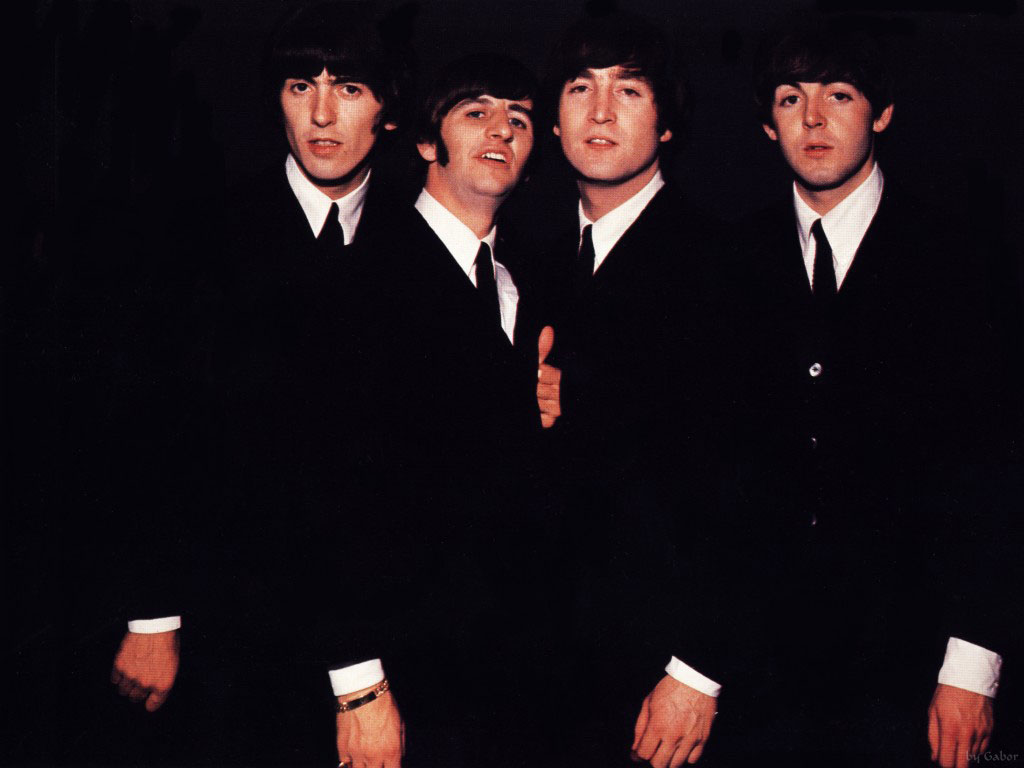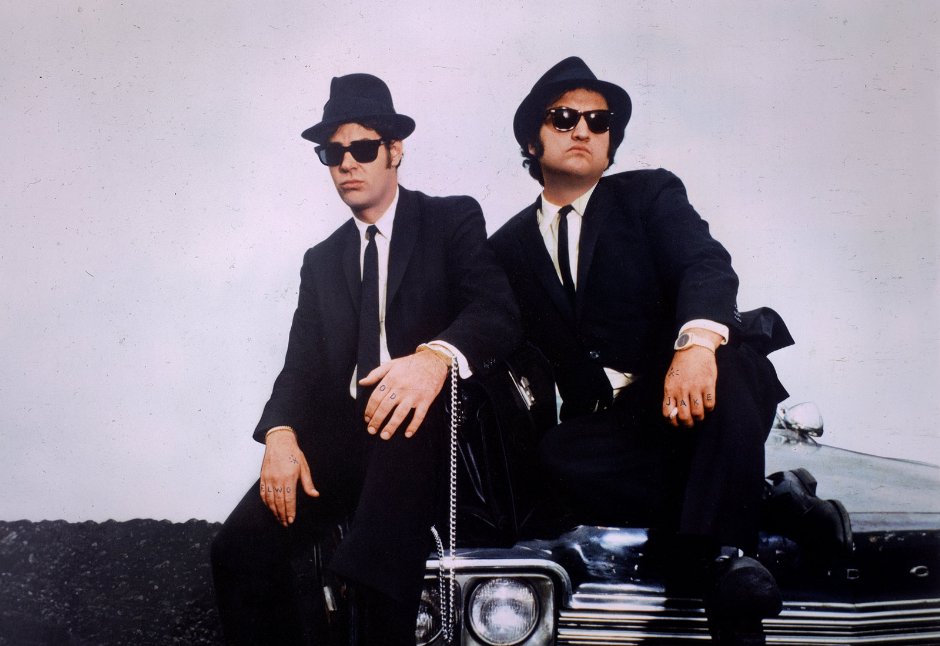Why You Don't Need a Black Suit
A black suit is the go to look for a lot of guys. But it shouldn’t be. Admittedly, there is a time and a place to wear a black suit, but those instances are limited and certainly do not include a professional setting. That said, I would primarily like to elaborate on why a man should not wear a black suit. But that also leaves us with the questions of how and when to wear a black suit, which I will also briefly address.
But first I would like to start with an anecdote.
Nearly two years ago a young college student walked into my office for an internship interview. He was, disappointingly, wearing a solid black suit. This gave me mixed emotions. On the one hand, I was glad he got dressed up for the interview. It was nice to see that kids these days have not totally lost it. However, on the other I was disappointed and felt bad for him because he was wearing a black suit to an interview. I firmly sit in the camps that a black suit is not appropriate for an interview, or any moderately casual to formal office setting for that matter. I knew that at the time he did not know any better so I couldn’t fully fault him. Fortunately, what resulted was a great teaching moment.
The resulting discussion was beneficial for both the student and me. I went on to explain to the student why a black suit was an inappropriate suit for the interview and what would be a better option. I’d like to expand on that discussion and discuss why a man should not wear a black suit. My purpose is not to rail against wearing the color black in all forms or completely against the black suit; just the black suit in most circumstances. I would also like to clarify that I am not referring to a black tuxedo or tailcoat, only a black suit.
We’ve all seen the photos. A dashing looking celebrity in a crisp black suit and a white shirt, perhaps there is a startlingly attractive women on his arm.
The Beatles wore the black suit well. Tom Ford and Karl Lagerfeld have adopted the black suit as their uniform. A black suit with a white shirt and black tie was the uniform for the Reservoir Dogs as well as Vincent Vega and Jules Winnfield. And lest we forget the Men In Black and The Man In Black (both Johnny Cash and the character from Westworld).
The look works for those type of guys, but not for us type of guys. Most of us just don’t have that intangible swagger nor do we have the ‘because I’m a celebrity I can break all the rules’ position in society.
So, why doesn’t it work for us? A few reasons: contrast and coloring, context, tradition and its association with mourning.
Let’s first talk about the coloring and contrast argument against black suits. For a majority of men a black suit, especially in daylight, provides too much contrast with their hair and complexion. This serves to wash out their skin tone creating a very unflattering look. I am primarily referring to low contrast men; those with light skin, eyes and hair. The black of the suit also can take on an orange or yellowish tint in the sunlight or a blue tint when in fluorescent light, neither of which are ideal.
Take the above graphic for example, it shows three men with different hair colors wearing the same black suit. For the gentleman with black hair the look works, but the black suit does not look as flattering with brown hair and even worse with blond hair. The contrast of the black suit with the skin and hair color does not provide an ideal frame for most men’s faces. However, gentlemen with tan or darker toned skin with black hair will have better luck with a black suit.
Along similar lines, black can be difficult to pair with colors from the shirt and tie. With large swathes of black fabric, like with a suit, black can easily overpower other colors being worn like pink, yellow and light blue. This will limit the number of combinations of color and texture a man can wear. This high contrast does not serve to flatter most men, myself included. Plus, all of these colors look better paired with a dark grey or navy suit anyway, why handicap yourself? In fact, the only color shirt that really looks good with a black suit is a white shirt. Sometimes a grey striped or checked shirt. I will also concede that sometimes a black suit with a black sweater or shirt underneath can work for some guys, although those times are almost always at night.
For a completely unrelated reason I would like to cite tradition. Many years ago I heard that part of the reason a black suit is frowned upon in a professional setting is because Abraham Lincoln was assassinated in a black suit. It was a Brooks Brothers suit, to be exact, and it did differ slightly in cut from the suits of today, this was in 1865 after all. Because of this fact, so the story went, a black suit was bad luck. Subsequent research has neither been able to confirm or debunk this theoretical tradition, but I’m going to stick with it and keep it on the list of reasons why not to wear a black suit. Regardless of the theory’s validity, it has long been a widely held belief in well-dressed circles, at least here in the US, that a black suit is not a business suit.
So when does a black suit work? A funeral. By wearing a black suit a man has historically signaled that he was in a period of mourning as well as showing respect to the deceased and their loved ones. Personally, I do not want to be mistaken for being in a period of mourning or coming from a funeral. In other words, I like to limit the reason for wearing a black suit and use it for a specific purpose.
The final reason a man should not wear a black suit is context. These days, who do you most often see wearing black suits? Waiters. There is nothing wrong with being a waiter, it can be a noble profession, but unless you are a waiter you probably do not want to be mistaken for one. I will cede that a black suit is a very formal suit, more so than a charcoal or navy suit. But it is a different type of formality. A type of formality that should be reserved for formal occasions like funerals and evening events. Said another way, black tailored clothing is really only festive when it is in tuxedo or tailcoat form; outside of that, it is somber and bland. I prefer to reserve black tailored clothing for semi-formal and formal occasions, not for business or professional settings. By doing so the uniqueness and importance of black tie and white tie is made that much more so by only wearing the color whilst in those dress codes.
On a purely subjective note, I find a black suit to be uninspiring and boring. It is bland and flavorless, much like an overcooked and underseasoned roast. I will also add that when not worn well a black suit will look cheap at best and cheap and slovenly at worst.
With all of my bias against black suits, I will acknowledge that they can sometimes work well at more formal evening events or when going out ‘clubbing’. The increased formality of the black suit as well as its complementary color to the dimmer settings of night do help the black suit come into its own in those settings. But a dark grey suit will essentially serve the same purpose. Yes, there is the argument that a black suit can pinch hit as a tuxedo in the most dire of circumstances, which for the record I am not a fan of but will say that a black suit posing as a tuxedo is better than no suit at all. I will counter with the idea that a gentleman should always own at least one tuxedo.
So we are left with the question of why even bother with a black suit in the first place when a vast majority of men look better in dark grey and navy suits? The short answer is, as you can probably tell, that most guys shouldn’t bother with a black suit. It’s a waste of time and money and most guys can do much better for themselves. For those that are dead set on wearing a black suit, make it your fourth or fifth suit, not your first or second suit and also understand the right time and place to wear a black suit. But then again, most of us will still look better in a dark grey or navy suit.
Justin Jeffers
Justin Jeffers runs the Fine Young Gentleman blog and founded Jay Butler Shoes.






